Weaning is a local word used for introducing solid food into your baby’s diet. You might hear your doctor or health visitor call it “introducing complementary foods” but we tend to talk about introducing solid food or first foods. You’ll probably hear it more when your baby reaches 6 months. Getting your baby to eat solid food is a whole new experience – it can take a bit of getting used to but don’t worry, your baby will still be getting the nutrients they need from breast or formula until they’re at least 9 months old.
What first foods will your baby love?
When to start first foods?
At about 6 months old, your baby might start showing signs that they’re ready. If they can sit up and hold their head steady, and are able to look at food, pick it up, and put it in their mouth – then it could be first food time.
You might have heard from others that you can start foods earlier. This isn’t recommended anymore. It’s worth remembering that milk has many more nutrients for babies than any food you can give them before 6 months so starting solids early will not help them.
How do babies learn to start eating?
Just as your baby learned how to feed from the breast or bottle they’ll master how to eat food. It’s not a race – the key is to be patient and follow your baby’s cues. Just keep encouraging them to try a range of different foods. It can take quite a few goes, so don’t give up too early!
Your baby can enjoy many of the same foods as you, so preparing and eating meals together will save time and money. When you do eat together keep an eye on sugar and salt levels – they can be damaging to little teeth and bodies. You can find a list of certain foods that they can and cannot eat right here.
How do we get started with food?
- Find a pace that suits both you and your baby. It’s better to build up gradually from one ‘solid’ feed a day but you could be eating together at breakfast, lunch and dinner by the time they’re between 9 and 12 months.
- Offer water in a beaker when you give them food.
- Get a highchair and make sure they’re sitting upright and comfortable. Never leave them alone – there’s a very real danger they could choke.
- Have a look at our page on first food recipes for some great first menu ideas.
Do I still give my baby milk?
Yes – carry on feeding as you normally do with breast milk/formula milk. It’ll still be your baby’s main source of nutrients until they’re 9 months old. If you reduce milk feeds too soon your baby can become very constipated and may not get all of the nutrients they need.
You can find all the ins and outs of what they should be drinking right here.
What first foods should you give your baby?
You’ll be relieved to know that you don’t have to buy any special baby foods – it’s far cheaper and healthier to cook the food that you would cook for your family. A 6 month year old baby can start with mashed food or finger food that can be prepared easily in just a few minutes. You can find some recipe inspiration here but we’ve got some quick suggestions to get you started:
- Well-cooked vegetables such as potato, broccoli, carrot, parsnip or cauliflower
- Well-cooked scrambled or mashed boiled eggs. If the eggs are lion branded then runny yolks are fine to give your little one
- Peeled, mashed or small pieces of soft banana
- Peeled, cooked fruit, such as apple or pear
- Low salt peanut butter on toast or bread.
Easy egg recipes for first foods
Your baby's appetite
Healthy babies know their own appetite, so just a few teaspoons of food may be enough to begin with. Never force your baby to eat if they don’t want to. There are lots of different ways to introduce solid foods to your baby, you can read about them – here are some ideas.
Tips from parents
"Have fun and be silly and try to not be offended when they hate your food haha."
"Prepare for mess. Prepare for them eating loads one day and nothing the next. Take loads of pictures."
"Eat with them, don’t try to have baby dinner time without you showing them how dinner should be eaten."
 Activities & Play
Activities & Play Behaviour
Behaviour Childcare
Childcare Development & Growing Up
Development & Growing Up Family, Friends & Relationships
Family, Friends & Relationships Feeding Your Baby
Feeding Your Baby Food & Eating
Food & Eating Health & Safety
Health & Safety Mental Health & Wellbeing
Mental Health & Wellbeing Money & Work
Money & Work Online Behaviour & Safety
Online Behaviour & Safety Pregnancy & First Days
Pregnancy & First Days School & Education
School & Education Sleep
Sleep

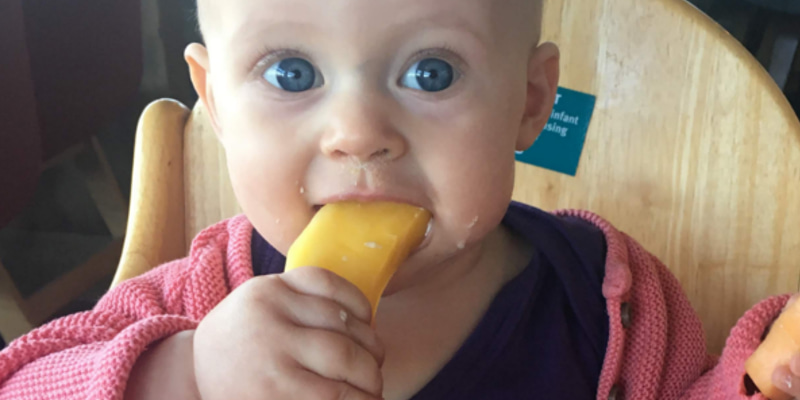
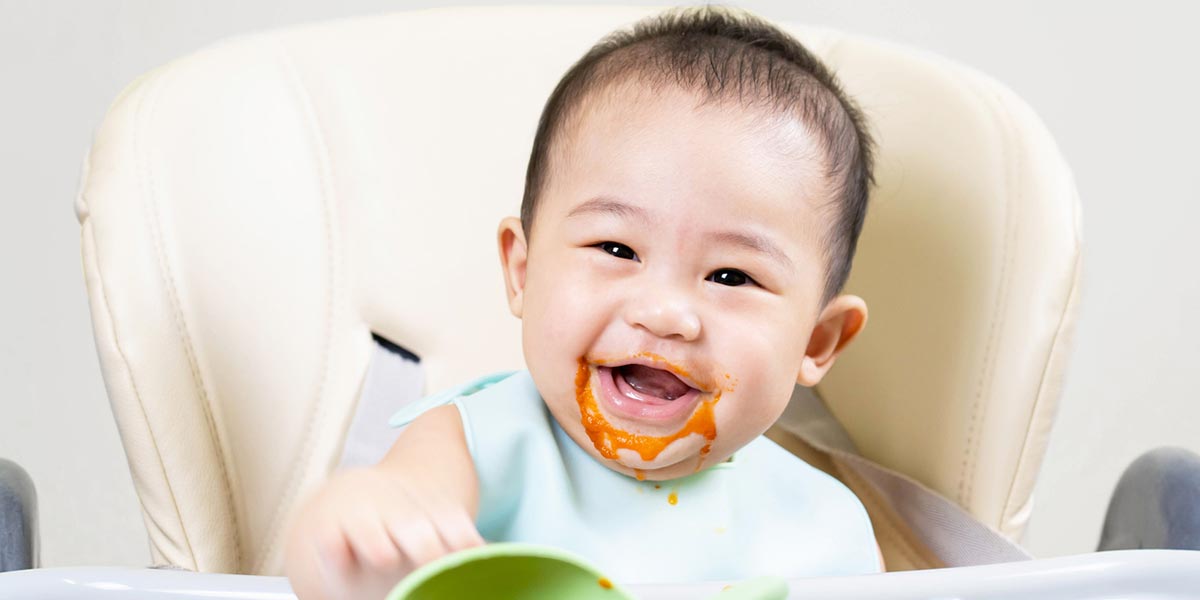
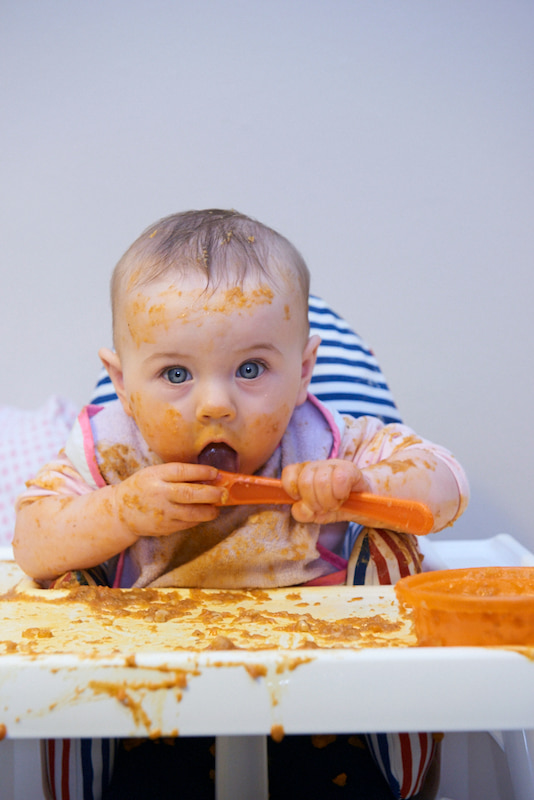
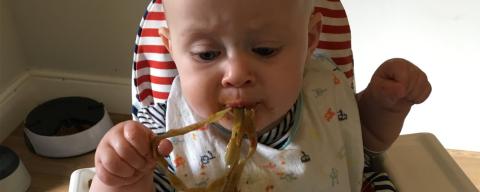
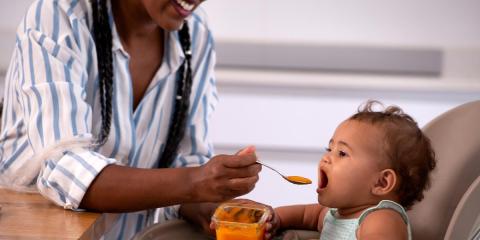

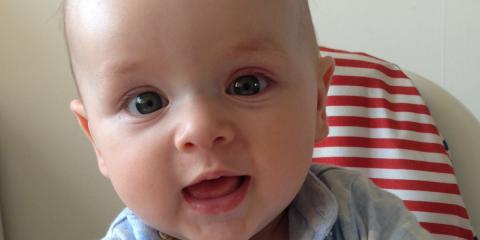
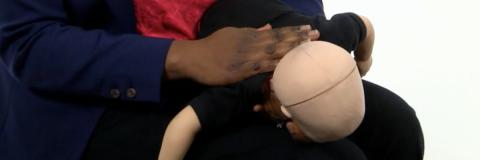
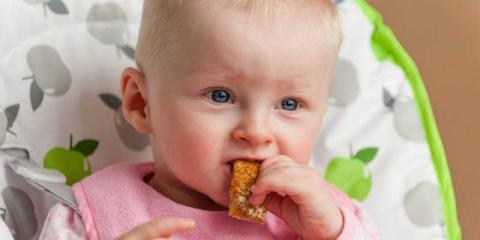
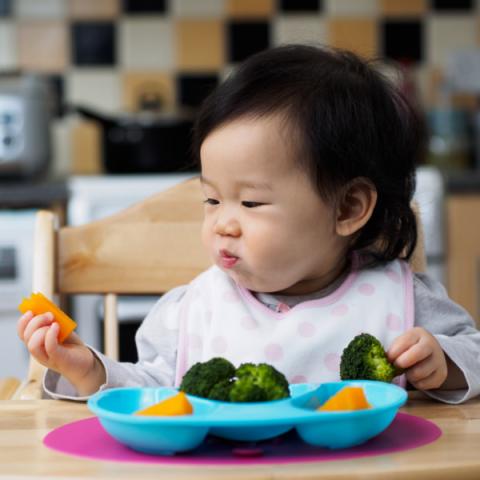
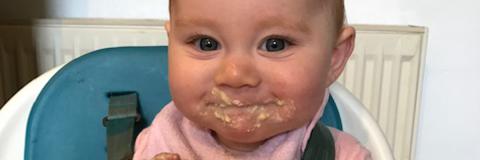
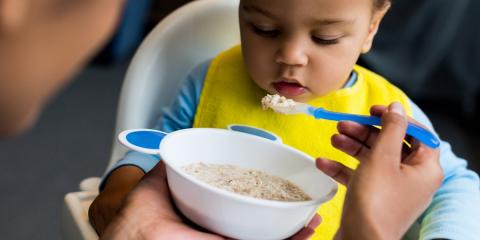
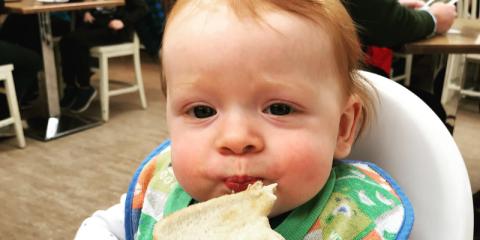
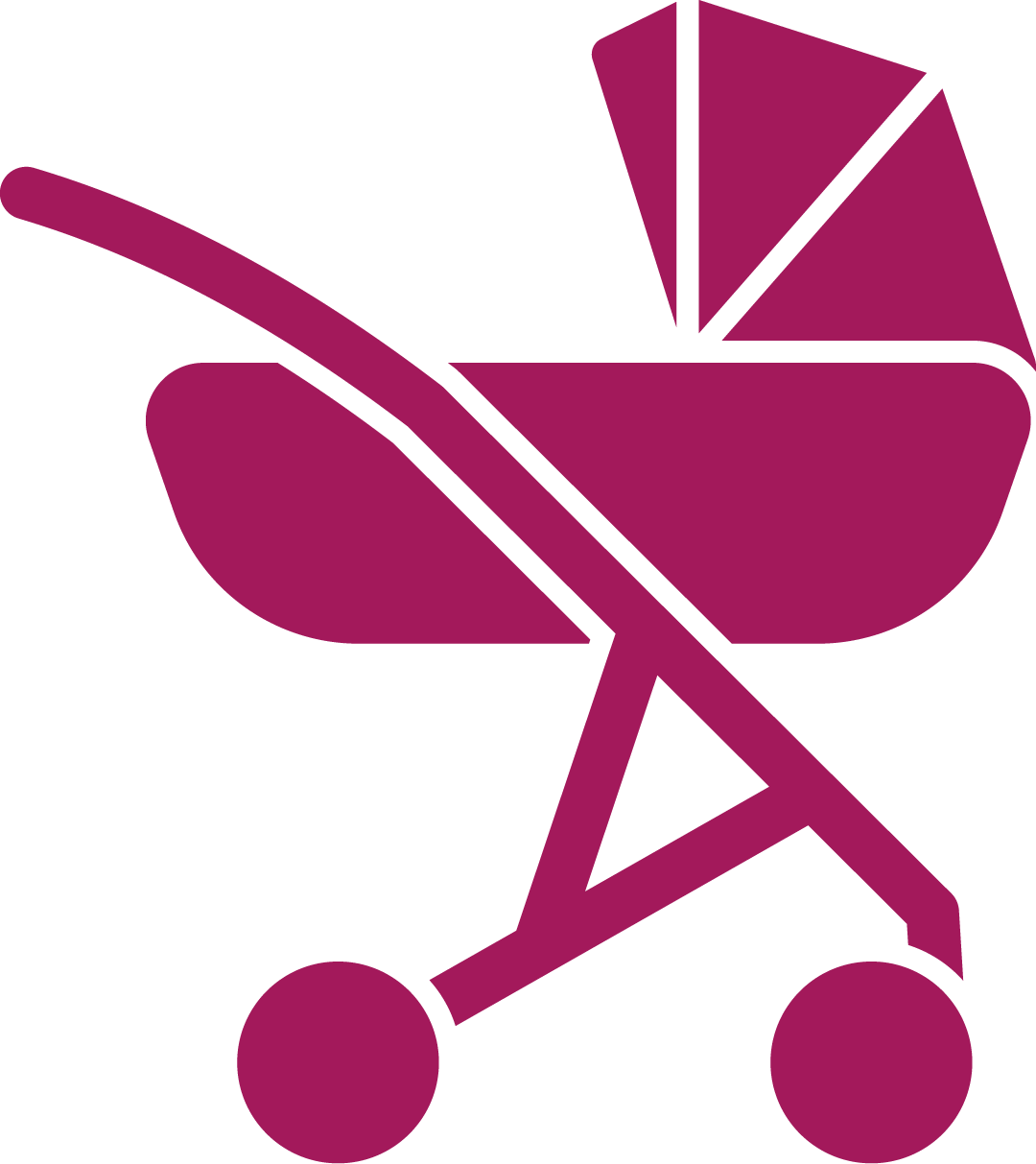 Pregnancy & First Days
Pregnancy & First Days
 Sleep
Sleep